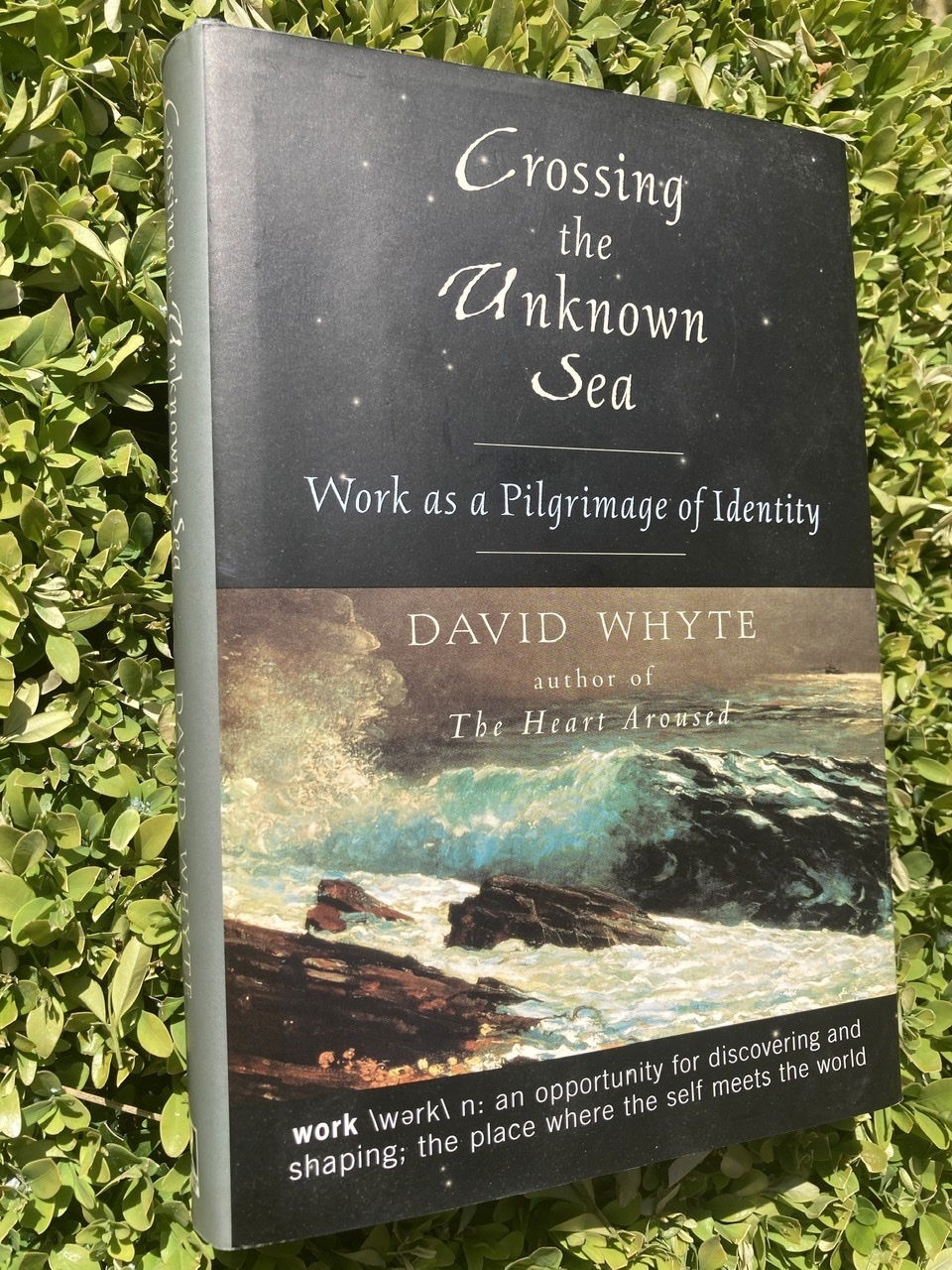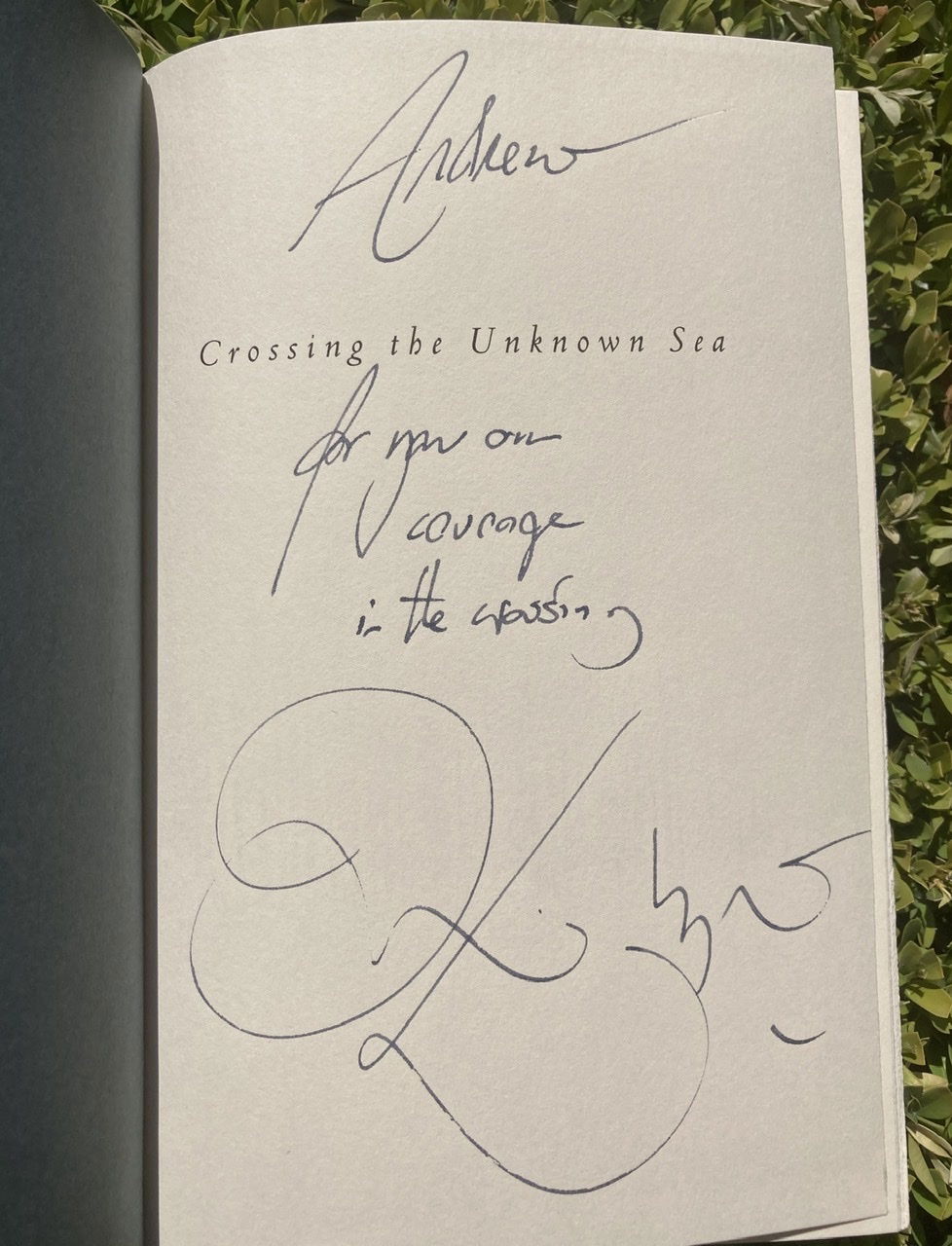Crossing the Unknown Sea
“To have a firm persuasion in our work – to feel that what we do is right for ourselves and good for the world at the exact same time – is one of the greatest triumphs of human existence.”
William Blake
There is little doubt that we are living and leading in extraordinary times. As the title of this post suggests, it may feel as if we are crossing the unknown sea. That we are setting off on a journey that neither of us really want to take, to a destination that neither of us knows, with a crew that is as anxious as it is wary.
Into the void
You are not alone. There is safety in numbers. Unlike in life, where crossing the metaphorical sea can sometimes feel like a lonely voyage of self-discovery, thousands of teachers and leaders are all taking those courageous first steps together in the coming days and weeks. Never have we found ourselves in a situation like this. It is unprecedented. Nobody knows what to expect. No one can claim they have cracked it. It has become a great leveler of sorts, as all schools find themselves in the same position, as they tentatively open their doors to a post-lockdown world.
It all sounds so apocalyptic. But of course, to the children it won’t be. No doubt they’ll wonder what all the fuss is about. They will skip into school as if nothing has happened. They will be as excited as ever to see their friends and teachers. The initial buzz and excitement about things being different will soon wear off and by mid-morning break, life will return to normal. This is what teachers do best. They make life normal. They provide that much-needed rubber ring that so many of our children crave and cling to.
In much the same way as knowing intuitively as a teacher what is right for your children, the same can be said of being a leader. You must always do what you believe to be right. Even if it turns out not to be. Hindsight is often unhelpful, unless used wisely as a means for genuine self-reflection and review. It needs to be served up by the right people and with the best of intentions. When chucked in your face, it is of no use to anyone.
So always stick to your beliefs, even if from time-to-time, you need to change them. I dare say your beliefs have been sorely tested these past few months, balancing the need to provide for the most vulnerable (school open), against the need to stay safe (school shut). I have yet to meet a school leader who lacks strong beliefs. That is why they are running schools, and inspiring and motivating people. It is through their beliefs that they make people feel as if they belong, even in times of great uncertainty. Never before has this been more important in our schools, as leaders (and I include all teachers in this) take centre stage and face outwards towards the communities that they serve.
A firm persuasion
To return then to the quote at the top of this piece, what we need is a firm persuasion. This is also the key theme running through one of the most powerful and beautifully written leadership books I have ever had the pleasure of reading. It is also the title of this post, Crossing the Unknown Sea. Written by poet/philosopher David Whyte, the book has almost become prophetic, as it charts the necessary voyage required when setting out on a difficult and unknown journey.

The book sets the scene perfectly, by opening with an extract from a poem by Janet Kalvern, called ‘Respectable Outlaw’. It serves as a timely rallying cry for a new type of leader, an outlaw.
“You have set sail on another ocean
without star or compass
going where the argument leads
shattering the certainties of centuries.”
Despite the challenges this inevitably brings, central to everything that we seek to change is the fundamental belief that what we are doing must always be the right thing, even if it does end up shattering age-old certainties. It is what poet William Blake refers to as the ‘firm persuasion’ that allows us to move mountains. At the moment though, with all the endless advice - much of which is far from compelling and often contradictory - it feels like an almost impossible task, given that we can’t even see the base of the mountain, let alone climb to the top and go down the other side.
A guiding star
In Whyte’s book, when setting out to change something, he seeks as a poet to calm the soul of the most reluctant traveler. He does so by emphasising the importance of self and identity. That we must learn to tune in to our hearts, minds and imaginations if we are to avoid crashing on the rocks. He guides us gently across the unknown sea with chapters on Courage and Conversation, Beginnings, Mid-Ocean, A Star for Navigation, and From Exhaustion to Wholeheartedness.
As we eventually approach our destination, we meet the inevitable Fatal Shore as we strive to arrive with authenticity, in order to conclude our work pilgrimage. Finally, there is a chapter called Perspectives that reminds us that as humans we naturally focus on the negative, rather than acknowledging our success. Instead of letting our achievements ‘warm and embolden’ us, we instead allow the ‘mantle of possibility’ to cover our face and eyes and obscure our perspective. What is important, is that we control the narrative here. It is only our perspective, and that of those close to us whom we trust, that matters. Everything else is just static.
Be more outlaw
As life begins to return to normal, and more and more schools re-emerge, as leaders we need to take on board what Whyte refers to as a ‘healthy outlaw approach’. We need to approach both work and life with the courage of an outlaw and learn how not to give a damn about cynicism. ‘The outlaw is the radical, the one close to the roots of existence,’ soothes Whyte.
Perhaps as leaders during these extraordinary times, we need to try and be more outlaw. Your staff, your pupils and your parents will thank you, which is all that matters. Of course, risk assessments and protocols and guidance notes are critical. Being outlaw does not mean being reckless. I do believe though that the outlaw in us all will occasionally have to show itself during the difficult days ahead, especially if we, as a profession, are to successfully navigate the unchartered waters that await us all.
Whatever difficult decision you make, take comfort from the fact that if you have a firm persuasion in your work, and that what are doing is right for your school and your community, then you will travel well and arrive safely. You will move that mountain.
As David Whyte so eloquently puts it when urging us to be more outlaw:
“We have a gleam in our eye; we look to the edges of things; no one really knows what we are up to. We see with the eyes of those who do not quite belong. We are dangerous again, and glad to be so.”
